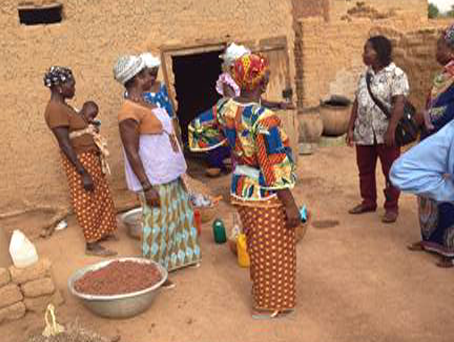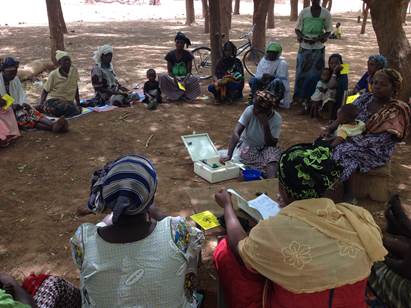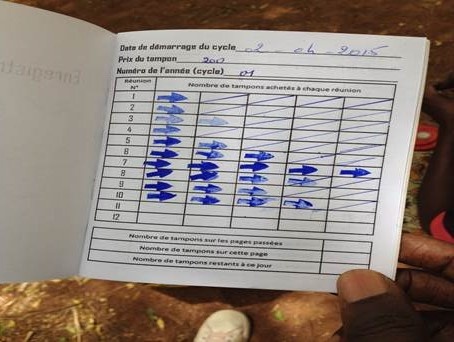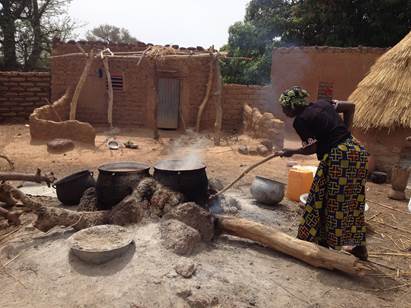I’m writing this post on the shady terrace of my office in Ouagadougou, Burkina Faso. After nine months of searching I connected with my dream job in May of this year: I work as a consultant for Trickle Up, an NGO that uses the graduation model to provide a comprehensive economic development program to the poorest of the poor in West Africa. I arrived in Burkina three weeks ago to contribute to a Randomized Control Trial of Trickle Up’s program, and I’ll be living in Ouagadougou and coordinating with partner organizations in rural areas for at least the next three months.
 Trickle Up participants at home with dried millet and sorghum
Trickle Up participants at home with dried millet and sorghum
 Meeting a of a village savings group
Meeting a of a village savings group
Impact evaluation fieldwork requires one to be versed in diverse and numerous fields. In the coming weeks, I’ll be designing program materials in French and communicating with the headquarters office in English, moving around Ouagadougou and out to the field by motorcycle and 4X4, tracking partner activities on Excel spreadsheets, considering budgets to find cost-effective ways to implement programs, helping to produce monitoring and evaluation surveys and tools, and coordinating contracts with partner organizations.
 My transport in Ouagadougou
My transport in Ouagadougou
 Notebook tracking contributions to the communal savings fund
Notebook tracking contributions to the communal savings fund
I’ve been interested in pursuing an MBA for several years. I now have a much more realistic understanding of the subjects I can expect to study and the relevance of these subjects to my field of interest. I appreciate the CORe program because it was both intensive and adaptable. On our cohort’s Facebook group, I’ve seen investment bankers, computer programmers, English majors and airline pilots talk about how the concepts that they’ve studied in CORe give them insight into their chosen profession.
 A program participant brewing sorghum beer to sell in markets and from her house
A program participant brewing sorghum beer to sell in markets and from her house







